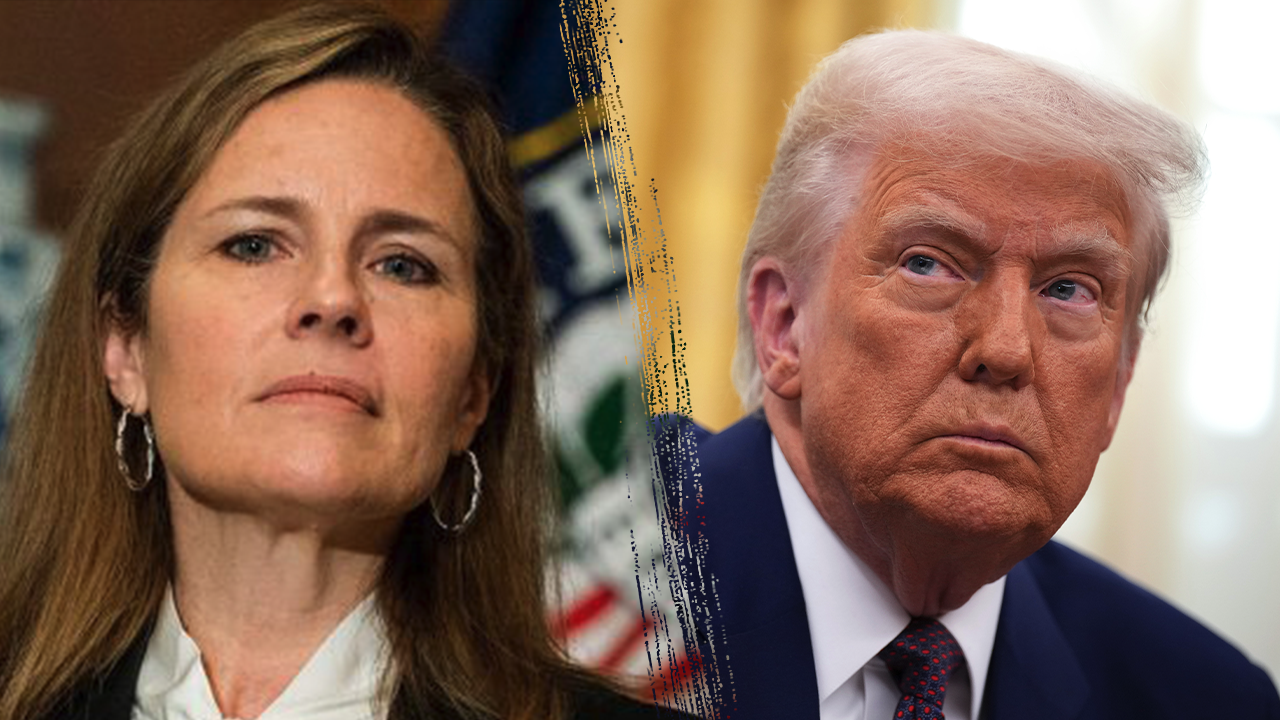Supreme Court’s Barrett grills Trump administration on following court precedent

Supreme Court Justice Amy Coney Barrett made headlines on Thursday as she sparred with U.S. Solicitor General John Sauer during oral arguments in a case related to President Donald Trump’s effort to end birthright citizenship. The exchange between the two quickly became one of the day’s most talked-about moments and could reignite criticism of Barrett from Trump allies.
Barrett, a Trump appointee, grilled Sauer on whether the Trump administration would follow federal court precedent, specifically focusing on whether lower courts should be able to block executive actions from taking effect nationwide.
“I want to ask you about a potential tension,” she began, before correcting herself and stating, “Well, no, not a potential tension, an actual tension that I see in answers that you gave to Justice Kavanaugh and Justice Kagan.”
Barrett then questioned Sauer about the administration’s stance toward lower court rulings, following similar lines of inquiry from her colleagues on the bench. She asked Sauer if the Trump administration “wanted to reserve its right to maybe not follow a Second Circuit precedent, say, in New York, because you might disagree with its opinion?”
Sauer responded by stating that “our general practice is to respect those precedents. But there are circumstances when it is not a categorical practice.” Barrett pressed further, asking if this was the Trump administration’s practice or “the long-standing practice of the federal government.”
Sauer explained that it is “the long-standing policy of the Department of Justice,” but Barrett continued to question him about the administration’s approach to following court precedents, especially in light of the Second Circuit Court of Appeals’ ruling that Trump’s birthright citizenship order is unconstitutional.
The exchange sparked divided political reactions on social media, with some criticizing the Trump administration for potentially ignoring lower court rulings and others expressing concern over Barrett’s approach to the issue. Barrett has faced criticism in the past for her decisions on the bench, with some labeling her as an “activist” justice.
Earlier this year, Barrett sided with three of the Supreme Court’s liberal justices in rejecting the Trump administration’s request to block funding for USAID projects. This decision led to backlash from Trump supporters, who have questioned Barrett’s loyalty to the president who appointed her.
The court ruling in the birthright citizenship case is expected to come in the coming days or weeks and could hinge closely on the votes of Trump appointees Justice Neil Gorsuch and Justice Barrett. Overall, the hearing was described as “sporty” by legal experts, with Barrett being highlighted as a key justice to watch.
In conclusion, the exchange between Justice Barrett and Solicitor General Sauer shed light on the complexities of following court precedents and the potential implications for the Trump administration’s policies. The outcome of the case will likely have far-reaching consequences and will continue to be a topic of discussion in the legal and political spheres.




